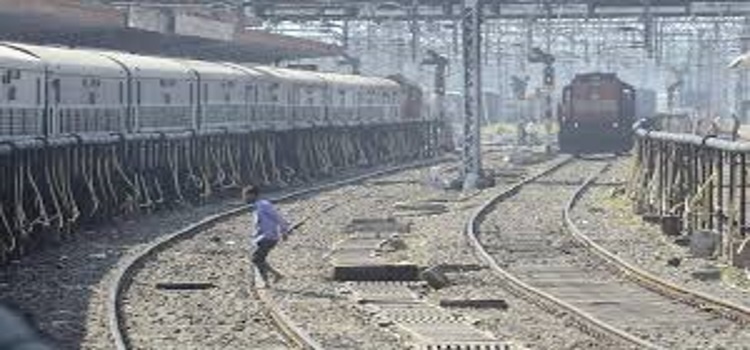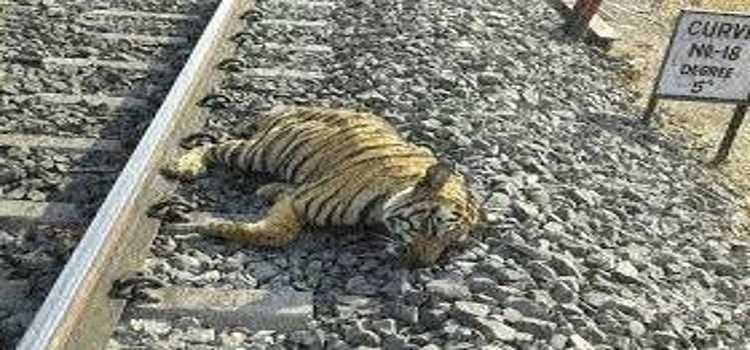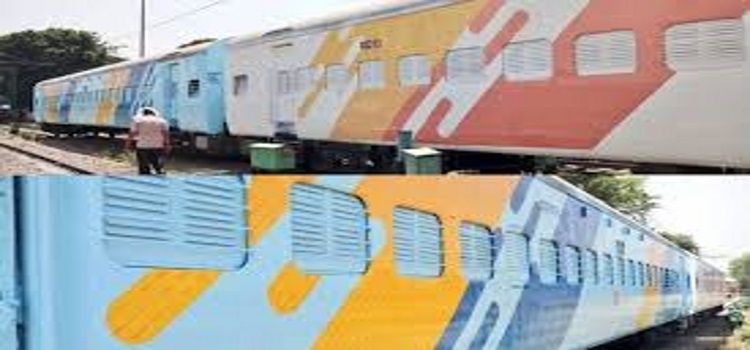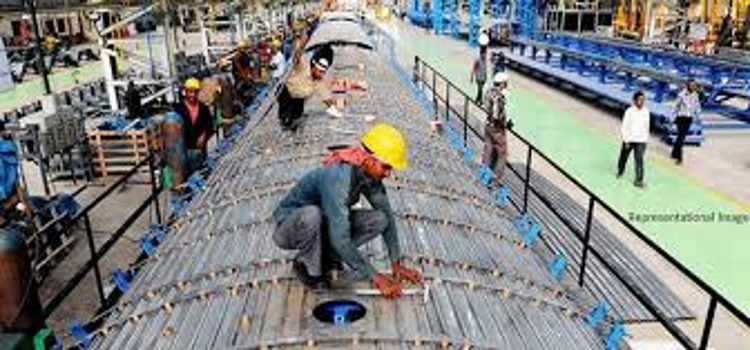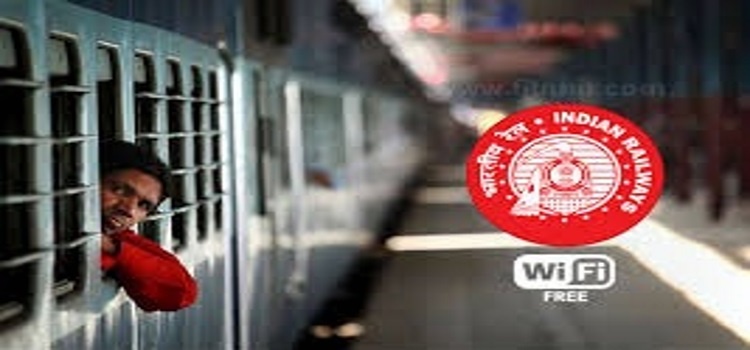In order to clear extra rush of Passengers during summer season, SCR will run 100 special trains between Secunderabad-Raxaul, Secunderabad-Barauni, Secunderabad-Vijayawada, Secunderabad – Guwahati, Secunderabad – Darbhanga, Hyderabad – Raxaul and Kakinada Town – Raichur as detailed below:
- Secunderabad – Raxaul – Secunderabad Special Trains (10 Services):
Train No. 07091 Secunderabad – Raxaul Special train will depart Secunderabad at 21:40 hrs on 3rd, 10th, 17th, 24th, 31st July, 2018(Tuesdays) and arrive Raxaul at 18:15 hrs on Thursdays.
In the return direction, Train No. 07092 Raxaul – Secunderabad Special train will depart Raxaul at 12:45 hrs on 6th, 13th, 20th, 27thJuly & 3rd August, 2018 (Fridays) and arrive Secunderabad at 06:55 hrs on Sundays.
Enroute, these special trains will stop at Kazipet, Ramagundam, Mancherial, Balharshah, Sevagram, Nagpur, Betul, Itarsi, Pipariya, Jabalpur, Katni, Satna, Allahabad, Gyanpur,Manduadih, Varanasi, Mughalsarai, Buxar, Ara, Danapur, Patna, Bakhtiyarpur, Mokama, Barauni, Samastipur, Darbhanga, Sitamarhi, and Bairgania stations in both the directions.
These trains will comprise of AC II Tier, AC III Tier, Sleeper Class and Second class General Coaches.
- Hyderabad – Raxaul – Hyderabad Special Trains (08 Services):
Train No. 07005 Hyderabad – Raxaul Special Train will depart Hyderabad at 21.30 hrs, arrive / depart Secunderabad at 21.50/22.00 hrs on 5th, 12th , 19th & 26th July, 2018 (Thursday) and arrive Raxaul at 17.30 hrs on the Second Day.
In the return direction, Train No. 07006 Raxaul – Hyderabad Special Train will depart Raxaul at 01.30 hrs on 8th, 15th, 22nd & 29thJuly, 2018(Sunday) , arrive / depart Secunderabad at 22.40/22.50 hrs and arrive Hyderabad at 23.15 hrs on the next day.
Enroute, these special trains will also stop at Kazipet, Mancherial, Sirpurkagazhnagar, Balharsha, Chandrapur, Nagpur ,Gondia, Durg, Raipur, Bilaspur, Jharsuguda, Rourkela, Ranchi, Muri, Bokaro Steel City, Gomoh, Parasnath, Koderma, Gaya, Nawadah, Kiul, Jamalpur, Sahibpur Kamal, Begusarai, Barauni, Samastipur, Darbhanga, Kamtaul, Janakpur Road, Sitamarhi and Bairgania stations in both the directions.
*These Special Trains will consist of AC II Tier, AC III Tier, Sleeper Class, General Second Class Coaches.
- Secunderabad-Barauni-Secunderabad Special Trains (10 services):
Train No. 07009 Secunderabad – Barauni Special train will depart Secunderabad at 22:00 hrs on 1st, 8th, 15th, 22nd, 29th July, 2018 (Sundays) and arrive Barauni at 11:40 hrs on Tuesdays.
In the return direction, Train No. 07010 Barauni – Secunderabad Special train will depart Barauni at 07:10 hrs on 4th, 11th, 18th, 25thJuly & 1st August, 2018(Wednesdays) and arrive Secunderabad at 22:40 hrs on Thursdays.
Enroute, these special trains will stop at Kazipet, Ramagundam, Mancherial, SirpurKagazhnagar, Balharsha, Nagpur, Gondia, Durg, Raipur, Bilaspur, Jharsuguda, Rourkela, Ranchi, Muri, Bokaro steel city, Gomoh, Parasnath, Koderma, Gaya, Nawadah, Kiul, Jamalpur, Sahibpur Kamal and Begusarai stations in both the directions.
These trains will comprise of AC II Tier, AC III Tier, Sleeper Class and Second class General Coaches.
- Secunderabad-Vijayawada-Secunderabad Superfast Special Trains (10 services):
Train No. 07757 Secunderabad-Vijayawada superfast special train will depart Secunderabad at 05:30 hrs on 1st, 8th, 15th, 22nd, 29thJuly, 2018(Sundays) and arrive Vijayawada at 10:45 hrs on the same day.
In the return direction, Train No. 07758 Vijayawada – Secunderabad superfast special train will depart Vijayawada at 17:30 hrs 1st, 8th, 15th, 22nd, 29th July, 2018(Sundays) and arrive Secunderabad at 22:50 hrs on the same day.
Enroute, these special trains will stop at Nalgonda, Miryalaguda, Guntur and Mangalagiri stations in both the directions.
These special trains consist of AC Chair Car, General Second class Chair Car Coaches.
- Secunderabad – Guwahati Special Trains (08 services):
Train No. 07149 Secunderabad – Guwahati Special train will depart Secunderabad at 07:30 hrs on 6th, 13th, 20th, 27th July, 2018(Friday) and arrive Guwahati at 08:45 hrs on Sunday.
In the return direction, Train No. 07150 Guwahati – Secunderabad Special train will depart Guwahti at 05:25 hrs on 9th, 16th, 23rd, 30th July, 2018(Monday) and arrive Secunderabad at 09:15 hrs on Wednesday.
Enroute these special trains stop at Nalgonda, Miryalaguda, Piduguralla, Sattenapalle, Guntur, Vijayawada, Eluru, Rajamundhry, Samalkot, Anakapalli, Vishakapatnam, Vizianagaram, Berhampur, Khurda Road, Bhubaneswar, Cuttack, Bhadrakh, Balasore, Kharagpur, Andul, Barddhaman, Rampurhat, Malda Town, Barsoi, Kishanganj, New Jalpaiguri, Jalpaiguri Road, Maynaguri Road, Mathabanga, New Coochbehar, New Alipurdar, Kokrajhar, New Bongaigaon, Goalpara Town and Kamakhya in both the directions.
These trains will comprise of AC II Tier, AC III Tier, Sleeper Class Coaches.
- Secunderabad – Darbhanga – Secunderabad Special Trains (18 Services) :-
Train No. 07007 Secunderabad – Darbhanga Special Train will depart Secunderabad at 22.00 hrs on 3rd, 7th, 10th, 14th, 17th, 21st , 24th, 28th , 31st July, 2018 and arrive Darbhanga at 13.45 hrs on the Second Day.
In the return direction, Train No. 07008 Darbhanga – Secunderabad Special Train will depart Darbhanga at 05.00 hrs on 6th, 10th, 13th, 17th, 20th, 24th, 27th , 31st July & 3rd August, 2018 and arrive Secunderabad at 22.10 hrs on the next day.
Enroute, these special trains will stop at Kazipet, Ramagundam, Mancherial, Sirpurkagazhnagar, Balharsha, Gondia, Durg, Raipur, Bilaspur, Raigarh, Jharsuguda, Rourkela, Ranchi, Muri, Bokaro Steel City, Gomoh, Parasnath, Koderma, Gaya, Nawadah, Kiul, Jamalpur, Sahibpur Kamal, Begusarai, Barauni and Samastipur stations in both the directions.
*These Special Trains will consist of AC II Tier, AC III Tier, Sleeper Class, General Second Class Coaches.
- Kakinada Town – Raichur – Kakinada Town special Train: (36 Services)
Train No.07245 Kakinada Town – Raichur special train will depart Kakinada Town at 15.05hrs on 01st, 03rd, 08th, 10th, 15th, 17th, 22nd, 24th, 29th,31st May & 05th, 07th, 12th,14th, 19th, 21st, 26th, 28th June, 2018 and arrive Raichur at 09.30hrs on the next day.
In the return direction Train No.07246 Raichur – Kakinada Town will depart Raichur at 14.25hrs on 2nd, 4th, 9th, 11th, 16th, 18th, 23rd , 25th & 30th May & 1st, 6th, 8th, 13th, 15th, 20th, 22nd, 27th, 29th June 2018 and arrive Kakinada Town at 08.35hrs on the next day.
Enroute, these special trains will stop at Samalkot, Dwarapudi, Rajahmundry, Nidadavolu, Tanuku, Bhimavaram town, Akividu, Kaikaluru, Gudivada, Vijayawada, Guntur, Narsaraopet, Vinukonda, Donakonda, Markapur Road, Giddalur, Nandyal, Betamcherla, Dhone, Maddikera, Guntakal, Adoni and Mantralayam stations in both the directions.
These special trains consist of AC III Tier, AC Chair Car, Sleeper Class, Chair Car coaches.

